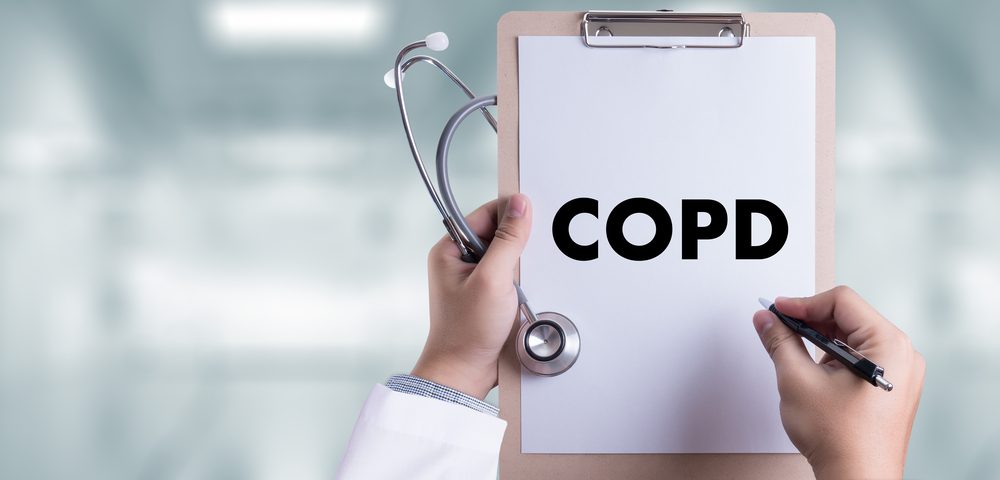Devices that remotely monitor COPD patients’ conditions could help improve their outcomes, a study suggests.
A Cedars-Sinai Medical Center team said there were signs in the previous research it analyzed that remote monitoring could help COPD patients, although the evidence was far from definitive.
In addition, their analysis of 27 clinical trial results failed to provide enough evidence that the devices can improve the outcomes of patients with other conditions. Four of the trials the Los Angeles researchers looked at were for COPD.
Their report, “Impact of remote patient monitoring on clinical outcomes: an updated meta-analysis of randomized controlled trials, appeared in the journal npj Digital Medicine.
“As of now, we don’t have enough evidence that they [remote devices] consistently change clinical [disease] outcomes in a meaningful way,” Brennan Spiegel, director of Cedars-Sinai Health Services Research and senior author of the study, said in a press release. “But that doesn’t mean they can’t.”
The 27 trials used in the analysis covered a range of conditions in 13 countries. Four dealt with whether remote monitoring could improve COPD patients’ outcomes. The four compared remote monitoring to usual care.
One of the COPD studies involved a nurse doing remote monitoring of patients’ pulse oximeter and respiratory health sensor readings. It concluded that the monitoring had no effect on patients’ lung function, hospital readmission rates, or health-related quality of life.
It did lead to patients playing a more active role in managing their COPD, the researchers concluded. They added that the small number of patients in the study and the brief follow-up period likely made it difficult to detect changes in patients’ conditions.
Another COPD trial involved remote monitoring of patients’ vital signs. The patients had lower rates of hospitalization and emergency room visits, and shorter hospital stays, than patients who were not remotely monitored — although the changes were not statistically significant.
Another finding was that the remotely monitored patients saved an average of $2,931 in treatment costs, compared with other patients. This prompted researchers to suggest that a larger study might yield significant results.
Similarly, a third COPD study found fewer hospital admissions and lower costs among patients receiving remote monitoring, but the admission-rate differences were not statistically significant.
The key findings of the fourth study were lower flare-up rates and flare-up-related hospitalizations among remotely monitored patients. Again, the differences were not significant.
The Cedars-Sinai team also analyzed several measures across all four studies. The analysis showed that remote monitoring had no effect on patients’ weight, body mass index, waist circumference, body fat percentage, or blood pressure.
Another conclusion was that some remote monitoring-related treatments appear to be more effective than others. At the top of the list were those based on established care guidelines, social science models or personalized coaching.
The researchers underscored that their study did not show remote monitoring to be ineffective — but rather that there has been too little research on the subject.
“Many of the studies we reviewed were still in the pilot phase,” said Benjamin Noah, the lead study author. “There just is not enough data yet.”
“Future studies should be powered to analyze sub-populations to better understand when and for whom RPM [remote patient monitoring] is most effective,” the researchers concluded.


Is there a better site for COPD? Yours seems to dwell on pulmonary fibrosis.
Dear Glen, You can look for COPD dedicated information on https://copdnewstoday.com
This site has a lot of helpful information on COPD: https://blog.lptmedical.com/
A CT scan in August of 2009 verified that I had Idiopathic Pulmonary Fibrosis. My first symptoms were cough and shortness of breath. I was on prednisone and inhalers. My blood oxygen level was 50 and i was extremely short of breath, i was barely able to breath. I went through cardio pulmonary rehab, It helped but not too long before all the severe symptoms returned. December last year, a family friend told us about Rich Herbs Foundation and their successful lungs disease treatments, we visited their website ww w. richherbsfoundation. c om and ordered their IPF herbal treatment, i am happy to report this treatment effectively reversed my Idiopathic pulmonary fibrosis and symptoms. I am back on my feet, i walk daily now and has made me able to walk my two dogs again without shortness of breath or sudden loss of energy. My activity level is up again.